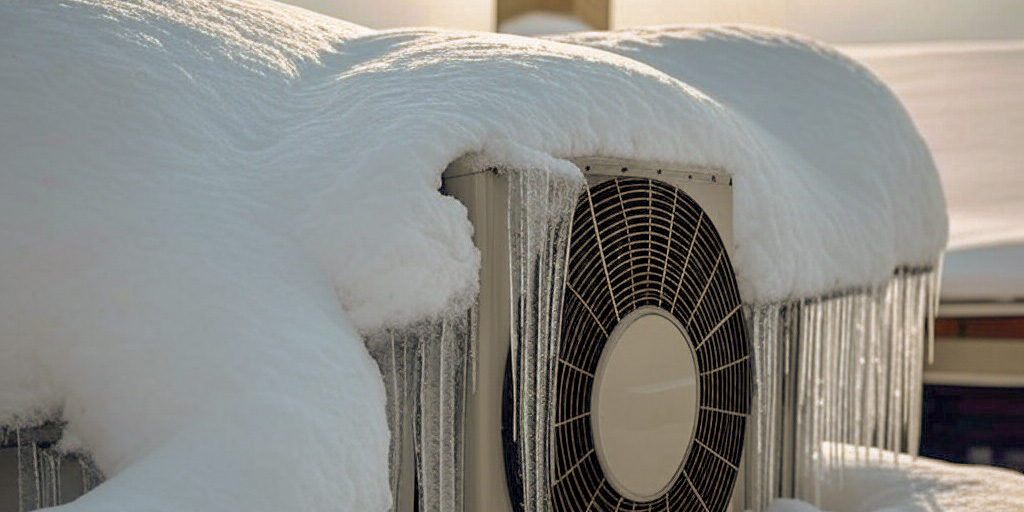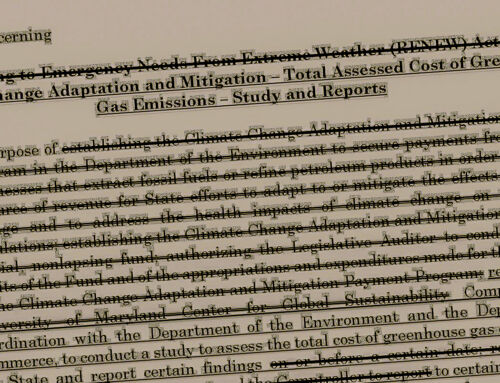View by Topic
Recent Articles
-
EPA Will Keep Current Limits for “Forever Chemicals” in Drinking WaterSaturday, May 24th, 2025
-
Court Indefinitely Pauses SEC Climate Rule LitigationSaturday, May 17th, 2025
-
Maryland is About to Regulate Mold But is the Cart Before the HorseSaturday, May 10th, 2025
-
New Environmental Laws from the 2025 Maryland Legislative SessionSaturday, April 26th, 2025
View by Month/Year
“Green Building Law Update” Headlines
Recent Articles & News from
Stuart Kaplow’s blog
at GreenBuildingLawUpdate.com
- EPA Will Keep Current Limits for “Forever Chemicals” in Drinking Water May 25, 2025
- Court Indefinitely Pauses SEC Climate Rule Litigation May 18, 2025
- Maryland is About to Regulate Mold: But is the Cart Before the Horse? May 11, 2025
- BEPS Redux: The Most Far Reaching Environmental Legislation of the 2025 Maryland General Assembly May 4, 2025
Subscribe to the Green Building Law Update!
Stuart Kaplow brings his expertise and extensive experience to the table with his unique digital publication, "Green Building Law Update". Subscribers receive regular updates to keep them informed about important issues surrounding Environmental Law, Green Building & Real Estate Law, as well as the emerging demand for Environmental Social Governance (ESG).
Get fresh content through the lense of Stuart Kaplow's cutting-edge expertise, innovative commentary and insider perspective. Don't miss another issue! Subscribe below.

Heat Pump Shipments are Down this Year for Good Reason
Despite generous incentives from the Biden administration residential heat pump shipments are down this year. A leading daily American newspaper reported in a front page story “heat pump sales, critical to the transition to clean energy, have slowed in the U.S. and stalled in Europe.”
Leaving alone the controversial and questionable efficacy of switching to all electric buildings to reduce global warming for other blog posts, the data here is a little wonky because there are large numbers of installers of electric air source heat pumps (.. the vast majority of which are manufactured and imported from China) so the best numbers, despite some time lag in reporting, are actual shipments to American customers. According to data released by the Air-Conditioning, Heating, and Refrigeration Institute, the trade association representing manufacturers of air conditioning, heating, commercial refrigeration, and water heating equipment, U.S. shipments of air source heat pumps totaled 435,589 units in December 2023, down 29.3% from 616,201 units shipped in December 2022.
According to another source, Cooling Post, the leading online resource covering the latest news and developments in the cooling industry, following another fall in air source heat pump shipments in October, total year to date U.S., heat pump shipments are down. And yet another source, Homepros, a digital media and news company covering the business of the HVAC industry, heat pump shipments dropped. Questionably, some have claimed sales in 2024 increased and while that may be statistically correct it is factually inaccurate because sales in 2023 were so low, down more than 29% such that even a 4% increase (from that low number) still results in shipments more than 20% below 2022 shipments (and certainly not growing despite all the exaggerated excitement).
In the U.S. some have suggested heat pump sales are decreasing because of “lags in construction, high interest rates, and general belt tightening from inflation.” But that is not correct because shipments of central air conditioners and gas warm air furnaces are both up.
The reality is that despite lavish federal and state incentives that promise thousands of dollars for each China manufactured heat pump, using Inflation Reduction Act funds, as well as the Biden administration invoking the emergency Defense Production Act to accelerate domestic electric heat pump manufacturing, the American people are not so inclined.
Despite the recent federal government and blue state munificent promotion of electric heat pumps as the energy efficient salvation, skeptical consumers are aware that heat pumps don’t actually generate heat but instead move heat that already exists in the environment. The same mechanism can be used to cool a space by transferring heat outside. So, it is a misnomer to say heat pumps are ‘energy efficient’ because they are primarily moving heat rather than generating heat.
And despite all of the attention in the last few years, heat pumps are not new. They were invented by Peter von Rittinger, an Austrian engineer and physicist, in 1855 or so. He is credited with the first successful design and implementation of a heat pump for practical use, using the Second Law of Thermodynamics to dry salt for kitchen use. Rittinger’s design utilized heat pumps to concentrate salt brine, demonstrating the process of transferring heat from a cooler space to a warmer one, which remains the fundamental principle of heat pumps. Over time, his invention was refined and became the basis for the modern heating, ventilation, and air conditioning unit.
Some suggest that it will take decades to see any meaningful shift. The typical useful life of a residential heating and air conditioning system is between 15 and 20 years, though this can vary depending on the type of system, maintenance practices, and climate conditions; with furnaces potentially lasting up to 30 years with reasonable care. So consumers are not likely to spend their money to remove a perfectly good working system to replace it with something newly manufactured in China (.. and how green would that be?).
But most damning is a survey conducted by an electric public utility of its customers that were HVAC purchasers in the last 12 months, residential customers responded with 5 key reasons they did not want to install a heat pump: (1) Compared to traditional heating systems, the first costs of purchase and installation of a heat pump system can be dramatically higher; (2) Heat pumps are generally installed outdoors and do not necessarily easily fit in the same space (i.e., duct work, power source, etc.) as the system being replaced; (3) Air source heat pumps can produce noticeable noise due to their fans and compressors; (4) Due to their complex design, heat pumps will require more and more expensive maintenance compared to simpler heating systems; and (5) While efficient in moderate climates, new high efficiency heat pumps that are much more expensive are the better option for areas with cold winters, but cold outdoor temperatures can require them to work harder using more electricity than advertised.
Also, disconcerting is that the term “heat pump” has been characterized as an “environmental claim that may mislead consumers” in contravention of the FTC Green Guides and in violation of state consumer protection laws because it implies that the device is actively creating heat, when in reality it is simply transferring existing heat from one place to another, not generating any new heat itself; therefore, the name could be determined by a consumer as inaccurate. That is, more than one state Attorney General’s office has written that “heat pump” may be considered misleading to a consumer when, unlike a furnace, a heat pump doesn’t burn fuel to generate heat; it simply moves existing heat from a cooler area (like outside air) to a warmer area (inside a home). That observed, the word “pump” might be okay in the context of a heat pump, because it means transferring heat from one place to another.
There are other wide spread concerns about real world performance versus federal government testing (.. did government really put its thumb on the scale with testing conditions to make heat pumps appear better?) and advertised efficiency of heat pumps when residential heat pumps are typically installed outdoors and, as a result, jacket losses ( not to mention matters of installation quality and retrofitted system designs) can be a significant source of energy loss; something not generally reported in controlled laboratory tested heating and cooling claims today.
The majority of people are not interested in all electric buildings nor electric heat pumps. Despite government pushing and pulling the domestic market (.. something that will all but certainly slow down if not come to a complete halt after January 20, 2025), the fact is that heat pump shipments are down.
There is a role for heat pumps in some new construction residential properties (.. maybe geothermal but not air source?), however, Americans should think twice before removing the perfectly good heating and air conditioning equipment in their home to replace it with an imported heat pump manufactured halfway around the world. To that end, it is all but certain that heat pump shipments will see a further decline in 2025.
________________________
Join us for the next in our “carbon based life forms” webinar series, “Administration Change Drives Environmental Change” this Tuesday, December 17 from 9 – 9:30 am. The webinar is complimentary, but you must register here.









